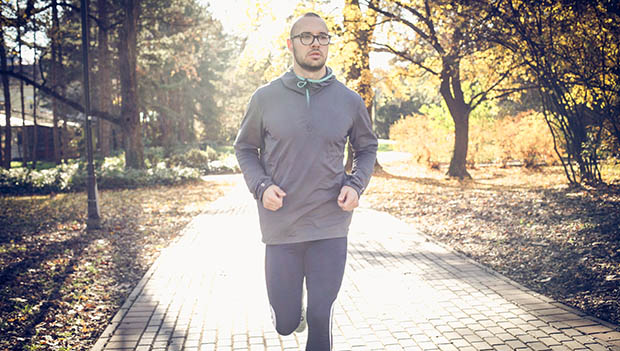
One or two? One or two?
If the world looks like a kaleidoscope while you're running, we hate to break it to you, you're not running at light speed (although your Strava followers would be impressed if you were)—you probably need a corrective lens.
But don't worry, you're not alone. And thankfully, gone are the days when runners and other athletes would have to wear goggle-like frames held in place with an elastic strap behind the head.
Now, runners have more options than ever if they need a corrective lens to help keep them safe and aware when out on a run. From contacts to prescription sports eyewear, there are plenty of solutions that are both easy and stylish.
Please note these are simply suggestions based on years of experience running with corrective lenses. Consult your doctor or optometrist before making a decision for yourself.
Back up Glasses
If you're like us, you have several pairs of prescription glasses and sunglasses stuffed in your nightstand drawer that have outdated prescriptions (and probably wire frames with nose pads, too). If you're interested in running but need a corrective lens while out on a run, take one of these pairs out of the drawer to test before taking the leap and buying a pair of prescription sports eyewear. You'll learn what works and what doesn't, find out what your preferences are and will be able to practice mid-run lens management before you potentially ruin a more expensive pair.
You may not look the coolest, but it's essentially a risk-free trial experience. If they bounce off your face and break, it's no loss to you.
Contacts
We know this solution isn't for everyone, but contacts are a solid option if you need a corrective lens as a runner. If you're nervous about trying them or haven't tried them lately, you might be surprised at just how far contact technology has come. The one-time use "daily" contacts are thin and barely noticeable to the wearer, and often contacts can provide sharper optics and an increased field of vision.
Additionally, wearing contacts instead of dedicated prescription glasses means you can wear just about any sports sunglasses on the market and you won't be limited to frames that take prescription lenses. Non-prescription sunglasses are often lighter, have a wider field of vision, have better airflow for less fogging and have a generally more comfortable wearing experience.
Prescription Running Eyewear
As we mentioned above, like contacts, prescription sports eyewear has come a long way in both performance and technical features.
Now, companies that specialize in prescription eyewear for athletes have developed lenses that wrap around (not just the flat lenses like eyeglasses), have vents for airflow, are polarized and more. And if you're unsure about which tint to pick, some brands have created frames that have a flip-up or clip-on feature for tinted sunglasses to cover the clear prescription lenses.
While your optometrist will likely have their own recommendations, some of our favorite brands that make prescription shades for runners and athletes are Rudy Project, Oakley and ROKA. They've all created modern frames with the latest technology that perform as well as they look.
Lens Management
If you choose to forgo wearing contacts and instead opt to wear a pair of prescription glasses while running, be mindful of how you clean your lenses. Prescription glasses (and all glasses/sunglasses for that matter), can fog up, get covered with dust and dirt from the trail and get sweat dripped on them, as well as a host of other problems; it's only natural to want to take them off and use your shirt to clean them.
This might be the quick-and-easy solution in the moment, but cleaning lenses covered in dirt or using the wrong type of cloth will put micro scratches in the lens—ultimately making them cloudy and less "sharp" over time.
If you feel the need to clean your lenses while out on a run, rinse the lenses with water from your bottle or hydration pack, and use a lens-friendly microfiber towelette (not your salt-stained polyester running tank).
Also, rain can be a serious issue when running with prescription glasses, as the water will bead and cause fogging. There are a few different "anti-fog" products on the market (besides ol' trusty saliva) that will help combat this, and we recommend wearing a hat with a brim if there's a chance of rain.
Are you a runner who has experience running with prescription glasses or sunglasses? Let us know your tips in the comments section, below!
READ THIS NEXT: 10 Running Hacks All Runners Should Know


